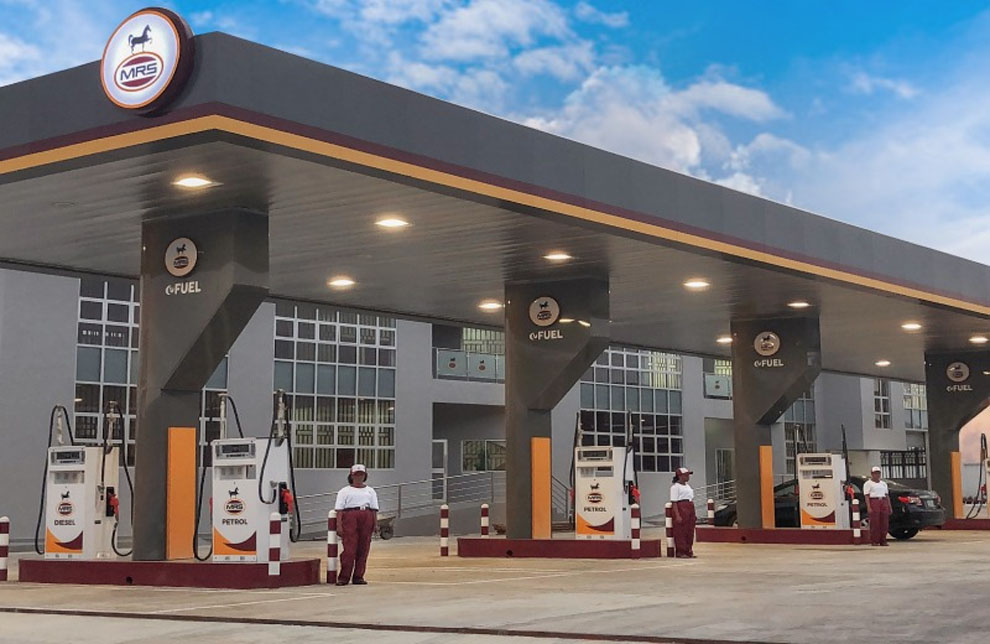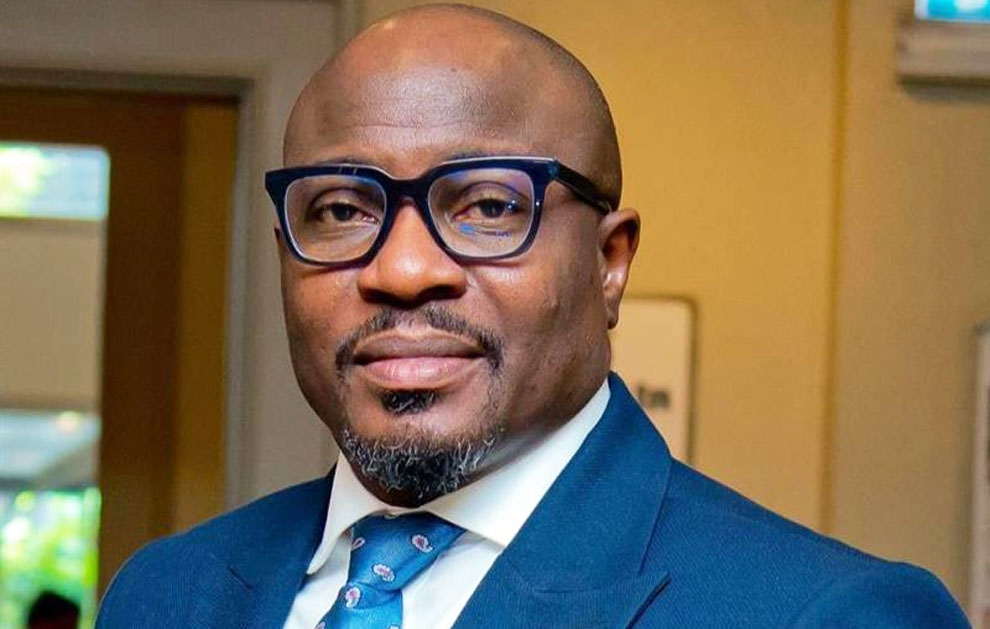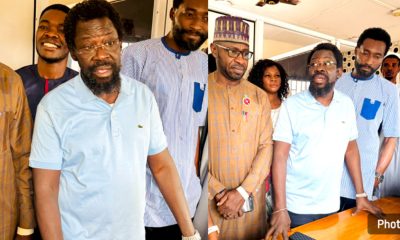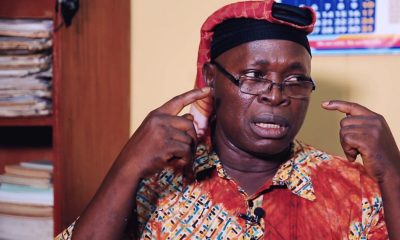Business
Petrol: MRS enforces N935 per litre nationwide

Petrol: MRS enforces N935 per litre nationwide
MRS Oil Nigeria Plc, a prominent player in the Nigerian downstream oil industry, has implemented a new petrol price of N935 per litre across all its retail service stations nationwide.
This follows an announcement by the President of Dangote Industries Limited, Aliko Dangote, that the Dangote Petroleum Refinery has partnered with MRS Oil and Gas to offer petrol at N935 per litre at retail outlets, following a reduction in the ex-depot price from N970 to N899.50 per litre.
In response, MRS Oil Nigeria Plc has instructed all its outlets to implement the new price immediately, setting up a digital platform and monitoring team to ensure full compliance. The company has also called on Nigerians to report any outlets that fail to adhere to the new price structure.
“Petrol is now being sold at N935 at MRS Filling Stations nationwide. If you find any station not following this price, please report it. Call 08009447853 or email: NG [email protected],” the company stated in a release.
Emphasising the eco-friendly nature of its products, MRS Oil added, “We call on all petrol station owners to join MRS Oil Nigeria Plc in improving the supply chain of our beloved country, ensuring product quality and availability in every corner of Nigeria for the benefit of all Nigerians.”
READ ALSO:
- Bandits abduct travellers in Ekiti, demand N30m ransom each
- NDLEA arrests 284 suspects, seizes 5,232,575kg of drugs in Kogi
- Yuletide: Lagos rolls out new strict measures to curb noise pollution
Checks by our correspondents yesterday confirmed that the new price had been implemented at all MRS Oil and Gas retail outlets nationwide.
In Lagos, commuters were seen queuing at MRS filling stations to purchase petrol. Many expressed their gratitude to Dangote Petroleum Refinery and MRS Oil and Gas, urging other marketers to support the indigenous refinery rather than import off-spec products into the country.
Mrs. Ibukun Phillips, a commuter at the MRS station at Alapere on the Lagos Ibadan Express way, could not hide her joy as her husband filled up their car.
“I am very happy today. This is a victory for Nigeria,” she said. “The price reduction is the best gift of the season. But beyond just the reduction, we are buying standard, eco-friendly petrol at a lower rate. My husband and I have decided we will only be using MRS from now on because we are confident in the quality of the product and supporting the economy.”
Commercial bus driver Adio Ajibade described the price reduction as a great relief, especially during the festive season.
“The reduction is a great relief. It will reduce transportation costs and benefit Nigerians. God will continue to bless Alhaji Aliko Dangote,” he said.
A public affairs analyst and university lecturer, Dr. Tunde Akanni, said the collaboration between Dangote Petroleum Refinery and MRS Oil represents a significant step towards improving the affordability, quality, and sustainability of petroleum products in Nigeria.
According to Dr. Akanni, “this move will not only help ease the financial burden on Nigerians but also promote a more environmentally conscious approach to fuel consumption, benefitting both the economy and public health in the long term.”
READ ALSO:
- FIRS opens recruitment for experienced professionals
- No regret removing fuel subsidy, says President Tinubu
- Tax reforms pro-poor, here to stay, says Tinubu
NNPCL cuts petrol price to N965/ per litre in Abuja
Meanwhile, NNPC Limited has reduced pump price of petrol at its retail outlets in Abuja to N965 per litre from N1,030.
Checks at NNPC retail outlets in the Central Area of the nation’s capital and in Nyanya suburb showed that pump prices have been adjusted to reflect the new rates.
The national oil company had two weeks ago reduced the retail price of petrol from N1,060 to N1,030 per litre as competition with Dangote Refinery’s product kicked in.
Two motorists who spoke to Vanguard at the Nyanya retail outlet expressed happiness at the development, urging the Federal Government to do more to lower the price further.
A commercial driver, Mr. Adamu Shuaibu, who plies the Nyanya – Zuba route, said: “I branched here yesterday to discover the new price. The government is trying and we want them to do more. The price should go back to N530 per litre so that the price of other things can come down too”.
On his part, Mr. Taofeek Adetunji, a private car owner, expressed delight at the latest price reduction, stating: “When President Bola Tinubu said the result of his reforms will soon begin to show, many people did not believe it but you can see it now. “We are hopeful that this will continue and prices will continue to go down. Petrol is the lifeblood of the economy and the price of other goods and services will also drop very soon. You will see it”, he said confidently.
Petrol: MRS enforces N935 per litre nationwide
Business
Naira slides to N1,650/$ in parallel market

Naira slides to N1,650/$ in parallel market
The Naira yesterday depreciated to N1,650 per dollar in the parallel market from N1,648 per dollar on Monday.
However, the Naira appreciated to N1,537 per dollar in the official foreign exchange market.
READ ALSO:
- Police kill three suspected kidnappers, arrest two others in Imo
- Lagos govt seals Coca-Cola, Guinness, Peak Milk
- Makinde speaks on Sharia court controversy in Oyo
Data published by the Central Bank of Nigeria, CBN, showed that the exchange rate for Nigerian Foreign Exchange Market (NFEM) fell to N1537 per dollar from N1,538 per dollar the previous day, indicating N1 appreciation for the naira.
Consequently, the margin between the parallel market and NFEM rate widened to N113 per dollar from N110 per dollar on Monday.
Naira slides to N1,650/$ in parallel market
Business
Airtel Nigeria calls for urgent actions as fibre cuts hit 43 daily

Airtel Nigeria calls for urgent actions as fibre cuts hit 43 daily
Telecommunication company, Airtel Nigeria, has called for urgent actions to protect telecom infrastructure as vandalism continues to surge leading to a record of an average of 43 fibre cuts daily on the Airtel network alone.
The company’s Director of Corporate Communications and CSR, Femi Adeniran, who made the call, said the telco had suffered a total of 7,742 fibre cuts in the last six months.
According to him, fibre cuts—primarily caused by construction activities, vandalism, and a lack of coordination between stakeholders—have become an epidemic in the Nigerian telecom industry.
“These interruptions not only inconvenience consumers but also hinder businesses, delay government operations, and compromise public safety, particularly in emergencies,” he said.
Emphasizing the critical roles of telecommunications in the economy, Adeniran said telecommunications infrastructure is not just about phone calls or browsing the internet; it powers vital sectors like education, healthcare, banking, and public safety.
In a world increasingly defined by digital transformation, the integrity of our telecom networks is as critical as our roads, bridges, and airports.
READ ALSO:
- Jubilation as Fubara announces huge Christmas bonus for workers
- Kidnappers kill 10yr-old-boy after N150,000 ransom payment
- [UPDATED] I never lied, truth is my weapon against injustice – Dele Farotimi declares after release
“Imagine waking up one morning to find no internet, no mobile network, and no access to emergency services—all because a single fibre cable was carelessly severed during routine construction.
“This is not just a hypothetical scenario; it’s a reality that plays out daily across Nigeria, threatening the backbone of our digital economy and undermining national security.
“On average, operators report multiple incidents daily, disrupting services to millions of Nigerians. Airtel Nigeria alone records a daily average of 43 fibre cuts and in the last six months, a total of 7742,” he shared.
Adeniran called on all stakeholders including government agencies, security agencies, construction companies, telecom operators, the media and civil society, to collaborate urgently in safeguarding Nigeria’s telecommunications infrastructure.
While the federal government had recently designated telecommunications assets as critical national infrastructure, the Airtel Director noted that beyond policy declaration, there is a need to urgently move to practical actionable steps some of which include:
- Stronger Enforcement and Coordination: Security Agencies and Regulatory bodies, must enforce stricter penalties for fibre damage while creating platforms for seamless coordination between construction companies and telecom operators.
- Regulating and Monitoring the Operations of Construction Companies: Construction companies to be regulated and monitored to ensure they accord similar status to telecom assets as they do to assets of other utility companies.
- Right-of-Way (RoW) Simplification: Streamlining the RoW process will ensure operators can bury cables securely and proactively plan for infrastructure protection in partnership with local governments.
- Adoption of Technology: Leveraging geospatial mapping and real-time monitoring tools will enable better identification of high-risk zones and faster response to incidents.
- Increased interest and Support from the Nigerian Media: Media stakeholders should support Public and private sector actors to drive targeted campaigns and public enlightenment on the importance of telecom infrastructure and the dire consequences of fibre cuts.
Airtel Nigeria calls for urgent actions as fibre cuts hit 43 daily
Business
Some crypto applicants may be disqualified – Nigeria’s SEC

Some crypto applicants may be disqualified – Nigeria’s SEC
The Director-General of the Securities and Exchange Commission (SEC), Dr. Emotimi Agama, has hinted that some crypto companies, that have applied to be registered by the Commission may not meet the requirements to get its approval.
Agama stated this at a meeting with applicants under its Regulatory Incubation (RI) and Accelerated Regulatory Incubation Programme (ARIP) its two regulatory windows for crypto players in Nigeria.
Nairametrics recalls that two crypto exchanges, Quidax and Busha were recently granted an approval-in-principle by the SEC to operate as legally recognised exchanges in Nigeria under its ARIP program.
At the time, the Commission also noted that there were several other applications under consideration.
While admitting that it would be difficult to assure that all the applicants would be registered, Agama at the meeting said:
“Certainly, not all of them will meet the requirements. The commission will keep providing clarity to some knotty areas to assist in the process.”
READ ALSO:
- Gunmen kill 15 in Plateau community
- Customs arrest 94 suspects, seize N18bn worth of goods
- Pensioners protest in Osun, demand N18,000 minimum wage
SEC committed to transparency
Agama at the meeting assured stakeholders in the crypto space of the SEC’s commitment to ensure transparency and integrity in crypto regulation, adding that the commission had provided a level playing field to all applicants.
- Agama noted that SEC understood the anxiety and the need to be regulated, but being careful, even in its desire to be inclusive.
- He said that the process of registration was very technical because registration was the hallmark of regulation.
“Registration goes beyond onboarding and registering, it requires monitoring, education, and surveillance, and all of these are continuous,” he said.
Agama stressed the importance of stakeholders’ input, adding that rules would be amended to include all valid points to make it an all-inclusive document.
Nigeria’s role in the crypto space
Emphasizing that the country is ready to lead crypto regulation, the SEC DG said:
“We are trying to ensure that at the end of the day, as a country we will stand out in the regulation of this space.
“Beyond any doubt, this space is the future and for us as Nigerians, we have embraced it.”
The SEC DG noted that the commission was not slow in its processes, but must be sure everything was in order to enable fairness in any pronouncements made.
“In the coming year, we will move faster in delivery and announcements, having learnt from this process. A new law has been passed and it is in the process of obtaining Presidential assent,” he said.
According to him, the law is replete with all of the ingredients legally required to properly regulate this space and give guidance to operators.
“All of these are efforts by the SEC to be as friendly as possible, protect the interest of the ecosystem and the interest of investors,” he said.
Some crypto applicants may be disqualified – Nigeria’s SEC
-

 metro2 days ago
metro2 days agoFG declares three days as public holidays
-

 metro23 hours ago
metro23 hours agoIbadan stampede: Court sends Ooni’s ex-Queen, Hamzat, other to prison
-

 metro1 day ago
metro1 day agoIbadan stampede: Ooni’s ex-queen, Oriyomi, others face arraignment today
-

 metro1 day ago
metro1 day agoBREAKING: Dele Farotimi released from Ekiti prison
-

 metro23 hours ago
metro23 hours ago[UPDATED] I never lied, truth is my weapon against injustice – Dele Farotimi declares after release
-

 Entertainment2 days ago
Entertainment2 days agoN5m reward announced for anyone who returns Wizkid’s missing phone
-

 metro18 hours ago
metro18 hours agoArrest Abuja, Anambra palliative organisers or set those in Ibadan free — MURIC
-

 metro2 days ago
metro2 days agoYoruba youths reject Sharia law introduction in region











